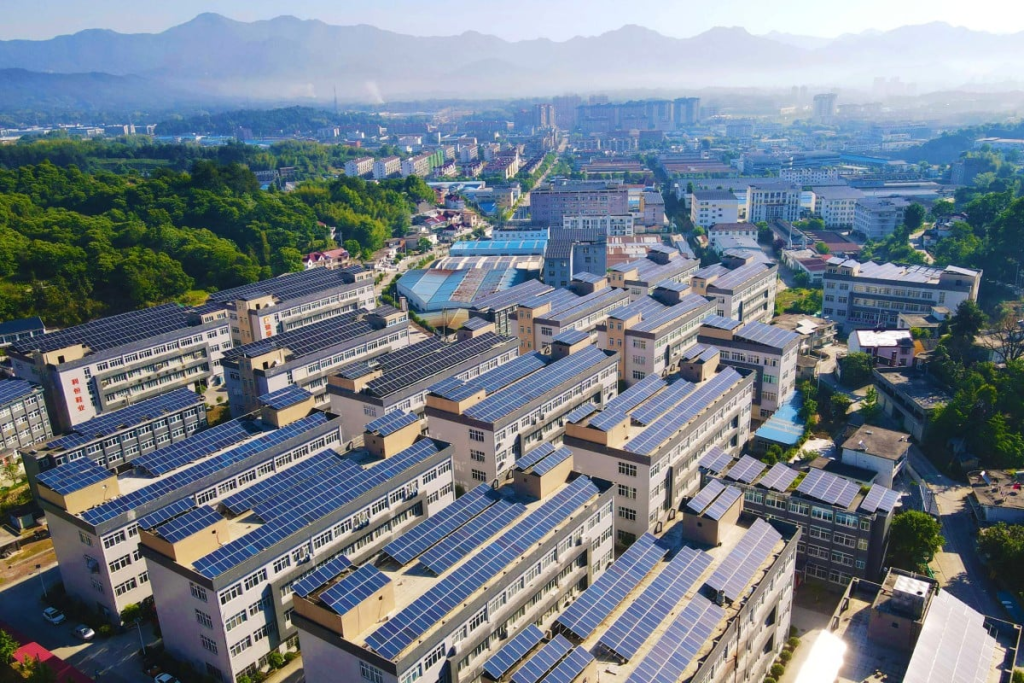
Beijing will help guide the green sector that has come under increasing criticism from the West, and the threshold for market entry will be raised with higher standards.
As China’s new energy sector faces rising trade barriers in the global market, the country’s officials have vowed to optimize its massive capacity while continuing to refute concerns about industrial overcapacity expressed by Western politicians and Beijing itself.
“Whether from the perspective of a comparative advantage or global market demand, I don’t think there is an overcapacity problem that everyone is worried about,” said Wang Shijiang, deputy director of the Electronic Information Department at the Ministry of Industry and Industry. Information Technology, during a press conference on Wednesday.
And in terms of some inefficient or delayed production capacity that currently exists in the country’s green sector, this will be gradually eliminated through market competition, said Wang, who was secretary-general of the China Photovoltaic Industry Association from 2021 to February this year. year.
“In fact, China’s new energy manufacturing industry is basically dominated by private companies, and these companies will make decisions according to market development and changes,” Wang said.
At China’s tone-setting annual central economic conference in December, Beijing pointed to “excess capacity in some industries” as one of the key economic challenges to be faced this year. But in recent months, officials have increasingly pushed back against the West’s “pure protectionism” and “exaggeration” of claims of excess capacity.
Moving forward, Wang said, the government will offer guidance to the new energy industry by changing regulations on product quality, technology and environmental protection, thereby raising the threshold for market entry.
Meanwhile, the government will promote industrial upgrades, such as finding ways to better utilize lithium batteries to store energy collected from solar panels, which in turn would help resolve grid volatility issues that arise from photovoltaic power generation.
“Through these measures, we can continue to expand the market space for these new energy capabilities, and further promote the continuous expansion of product varieties and expand the new energy application market,” Wang said.
Authorities will also work with industry associations to strengthen monitoring of industrial operations and regularly release key information on production capacity and production to alleviate market disorder, he added.
China will also deepen international cooperation in the field of new energy to expand application scenarios, Wang said.
“Now, the global demand for green energy is increasing, and everyone is hoping for more green energy such as photovoltaics… the future massive market demand has laid a foundation for large-scale development,” he said.
In 2023, Chinese-made solar panels accounted for more than 80% of global production. Seven of the world’s ten largest photovoltaic manufacturers were from China.
The country also produced 75% and 60% of the world’s lithium batteries and electric vehicles last year, respectively.
Such dominance has increasingly aroused distrust from the United States and the European Union, which accuse China of stifling its own manufacturing sectors through excess capacity in its new energy industries.
The EU announced on Wednesday that it would impose an additional 21% tariff on most Chinese-made electric vehicles (EVs), following a seven-month investigation into subsidies in China’s EV sector.
Last month, the US announced sharp increases in tariffs on a range of Chinese new energy imports, including a 100% tax on electric vehicles, even though the US imports very few Chinese EVs.
At a China-France-EU trilateral meeting in Paris last month, President Xi Jinping insisted that there is no “China overcapacity problem.”
Beijing argues that the basis of international trade is each country’s comparative advantage and that, from a global perspective, there is actually a capacity shortage in the new energy sector. Thus, he argues, China has helped ease global inflationary pressure and made major contributions to the world’s green transition.
“The view that massive exports equate to overcapacity is completely untenable,” said Ding Weishun, deputy director of policy research at the Ministry of Commerce, during Wednesday’s press conference.
“We believe that relevant countries, such as the United States and the European Union, cannot raise the banner of combating climate change and demand that China assume most of the responsibility for confronting climate change, and at the same time wield the baton of protectionism to prevent free trade in China’s green products,” Ding said.
Via South China Morning Post.
Source: https://www.ocafezinho.com/2024/06/13/china-promete-novas-regulamentacoes-energeticas-e-refuta-excesso-de-capacidade/

